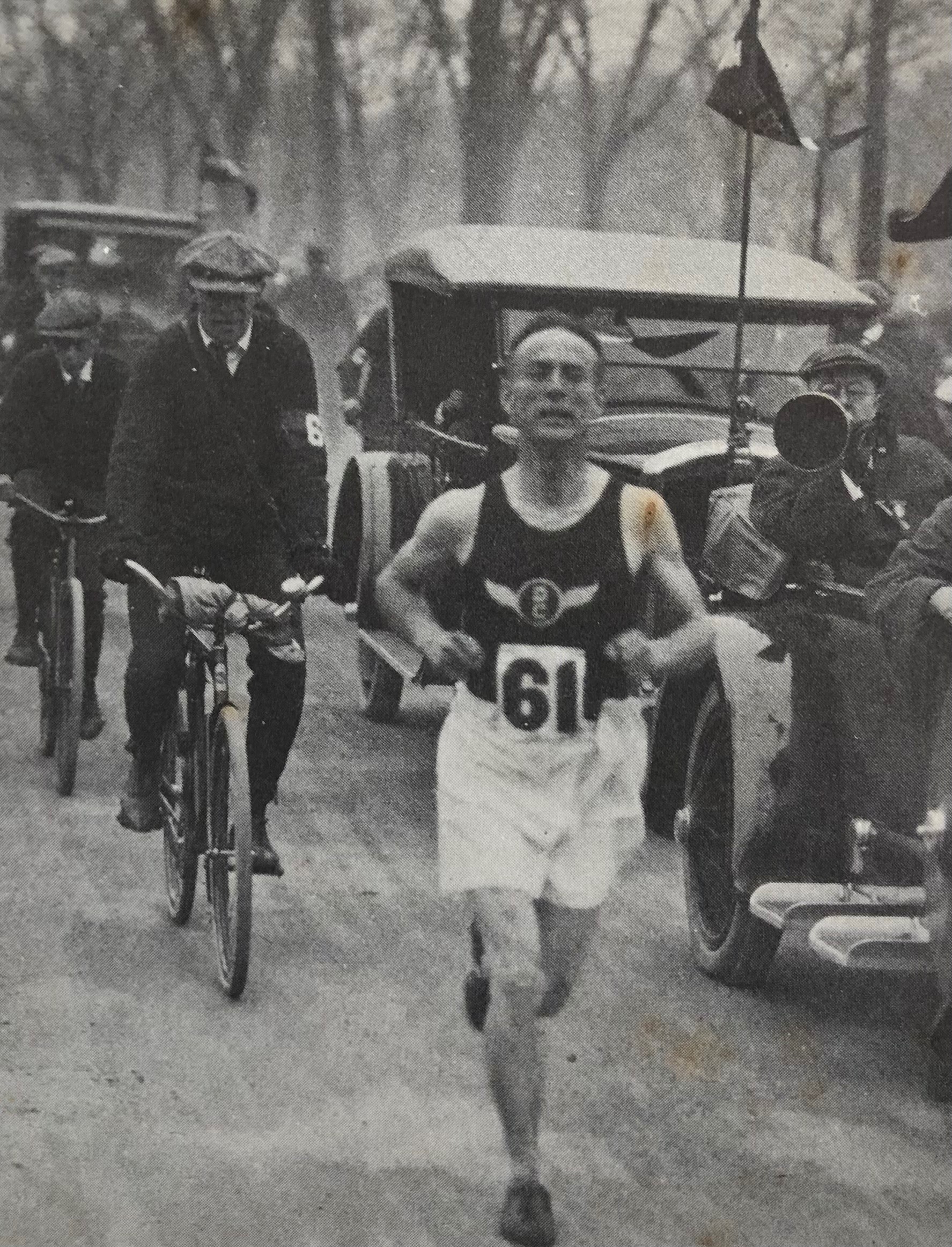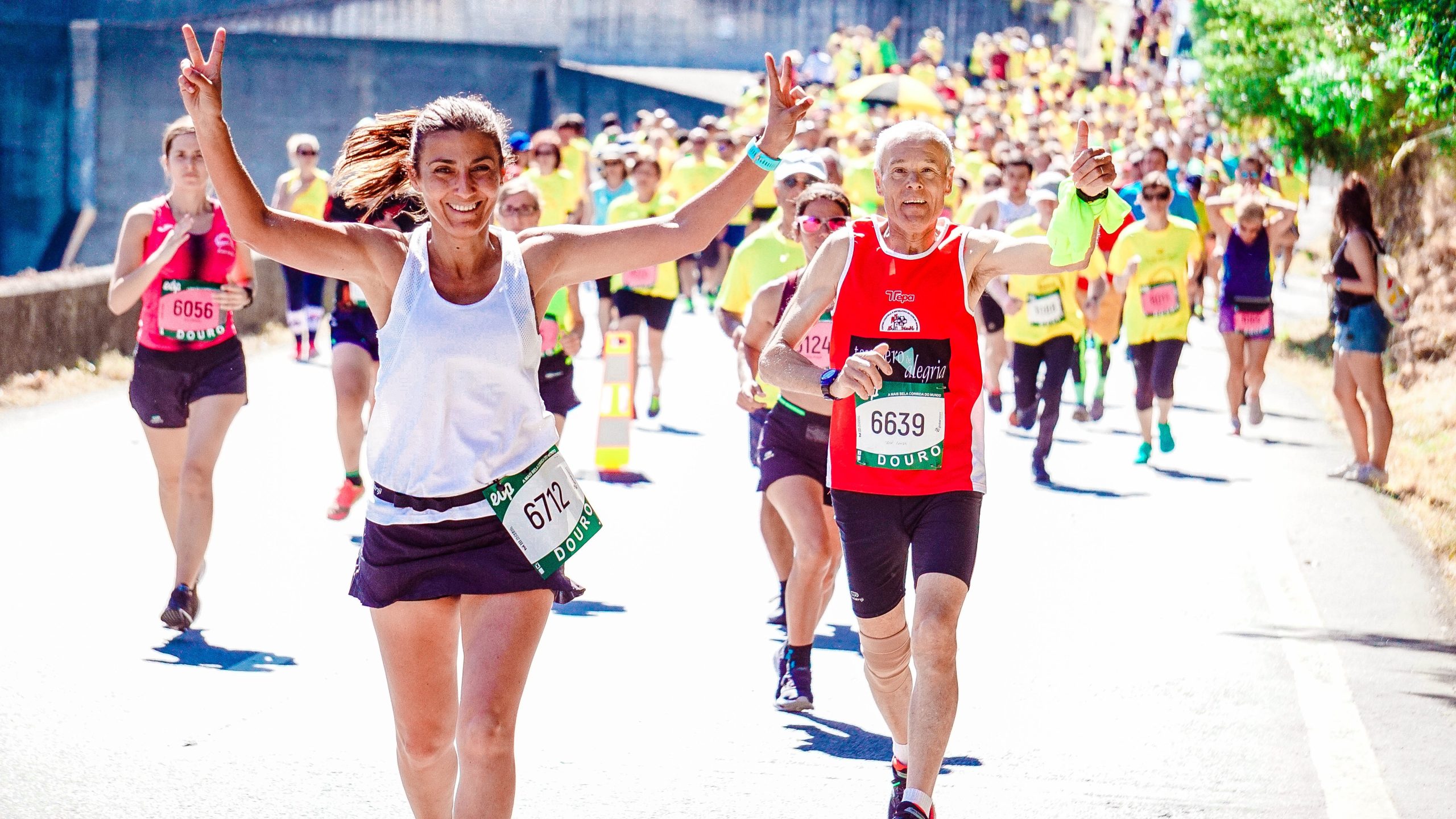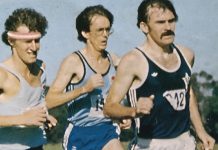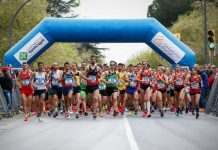‘We cannot depend upon time. Our life, like it or not, fortunately or unfortunately, is in our own hands. If we believe in fate, then we must love fate, love whatever happens, because all we can control is our reaction to life.’ (George Sheehan 1992)1
‘I ran my first track meet in May 1949. In May 1969 I was still running. I anticipate that I will still be running in May 1989 and May 2009. How can I ever die with the old heart perfect, the lungs perfect, the entire body machine perfect?’ (Grace Butcher 1978)2
‘The end comes when the spirit gives up.’ (Percy Cerutty 1967)3
This is my final article in the Practical Philosophy series.
In my introductory article I mentioned mortality as something we tend to push aside in navigating our day to day lives. As we age, by virtue of our running activity, we may observe the signs of our own demise more acutely than others. But simultaneously we remain in touch with the sensations of our youthful selves. This can be difficult to reconcile, for despite the inevitable slowing down, on the inside many of us feel the same as we’ve always felt. The engagement in physical activity being a buffer to the aging process.
In this brief article I discuss this duality and what it may mean to the mature distance running cohort. The reader may also recall that I gave a commitment to identify certain adages (short statements expressing a general truth) about those things that really matter to a mature age competitive distance runner, and no doubt to some of the general populace of the running fraternity. Therefore, I have attempted to summarise said adages as a potential value set, appearing at the bottom of this article.
- What Do I Think? Don’t Let Go
I write from the perspective of someone who commenced distance running at 12 years of age, had a sabbatical from a significant commitment to distance running in middle age, returning to a level of competition age 49 and continuing to run and compete towards his seventies.
Lifetime runners are a rare breed. I certainly was not able to manage it, the selfishness of the commitment dousing the fire of competitive desire and the level of dedication that lifetime running entails. Though a flicker remained through midlife, primed to become a raging inferno once I was ready again. I have come back to running, and I will not, cannot, let it go. This may sound melodramatic, and it is, quietly so, representing the flourish of commitment to a running life that faltered and is now renewed.
There are two main considerations as we age. When do we stop competing and when do we stop running? These are very personal decisions.
The end is where it ends, dictated by fate. It will happen to us, but it is not something we should think about. We just run and race until we cannot. The latter tends to come first in our demise but for some the aspiration to sustain the former never dies. At its base level, it is something we want to hold onto, the pure joy of movement without the baggage of competition.
In those really advanced years, even just the simple act of ‘holding on’ to the joy of running may require discipline and commitment, a dedication to oneself, not to give up. In the overall scheme of things, it’s a matter of weighing up if it is still worth it, and objectively assessing if it is still physically possible.
Many of us would miss it too much to stop, and that is what will guide our approach in later life. If we would miss it too much, we will exhaust all avenues, do everything in our power to continue. If after adopting such an approach we can’t return to our love of running, then, and only then, will we contemplate that ugly mire of ‘retirement’ from running.
- A Basic Fact
Age 70 is generally accepted as a major milestone for a mature aged runner.
For all of the reasons I have discussed in this philosophy series and my series about main training principles for mature runners, the practical philosophers are unanimous that despite a mature endurance athlete’s best effort to mitigate the effect of aging, a decline in performance accelerates from age 70 onwards. Notably, women appear to experience this decline at a greater rate than men. This is our reality.
So, at this juncture many long-time competitive runners reflect on whether to continue competing hard or fall back into recreational running, or cease running altogether. Naturally such a decision is influenced by a range of life, employment and health issues. It is here that we invoke the intangibles of optimism, persistence and patience. For a running life is full of obstacles – societal, physical, psychological – that means it can always seem an uphill battle.
Ultimately, it may be an easier decision to cease competing than it is to cease running. Certainly, my personal preference is to ride out my life for as long as I can, still running, even if I cannot compete.

- Existential Issues
In academia much is made of existential issues for the elderly. I have said previously that one perspective is that the highly competitive mature age runner who engages in intense physical activity may be in denial of existential issues.4 Something that could pose challenges to identity management and psychological health in later life.
Within this framework, choosing not to be old can be viewed as not accepting reality. But this is how many of us get by, psychologically and physically. It is our bridge to vitality. A not unreasonable delaying tactic to our own mortality, as long as you understand there are no absolute guarantees.
Naturally, if the mature aged competitor is drawing an overly close relationship between their level of activity and longevity, or entering a phase of denial about their own mortality, that may not be healthy. But if kept in check, maybe it’s a reasonable coping mechanism? Sport can assist an individual to come to terms with an aging identity, generating a positive outlook on life, rather than accepting the alternative of a passive existence, and all of the psychological maladies that come with passivity as the years go by.
Academics Baker et al (2009)5 put it nicely: ‘..there is a fine line between pursuing large amounts of physical activity because of one’s passion for sport and desire for a healthy lifestyle, and engaging in too much because of one’s obsession with physical training or (in the case of older persons) feeling “they have to” keep active to age successfully.’
Everything in perspective, a balanced outlook, that’s the trick.
- Concluding Comments
We are all practical philosophers of sorts as we run down the road of life. How long we can push out the boundaries of vitality are unknown, dictated by fate, but also influenced by how we choose to manage those things we can control.
If you are still competing at 70 you are in a very small minority. If you are over 90 and still running, never mind competing, your decision is visible for all to see, and is to be lauded, because there aren’t many left still standing, so to speak.

Negotiation is not required, because fate is the major player. And fate always wins out.
However, nothing can dilute the pure joy of running. It is worth fighting for, or that’s how I see it. So, keep on running, I say, for as long as is humanly possible and don’t be put off by the naysayers.
There is no end, just a running continuum until there is no more.
- Adages of a Practical Philosophy
Whether recreational or competitive, the primary motivation to run is to feel good.
The motivation for success, that delivers longevity in racing performance and deep personal satisfaction, can only come from within.
Though racing success is married to satisfaction, a competitive runner’s natural state is to never be satisfied with their performance even if it’s a world best, for we are always striving for something better.
Motivation is about a search for near perfection as opposed to absolute perfection, the latter breeding anxiety.
Racing is not about compromise. If you think it is, you are not a racer.
The ideal strategy for mature age racing, physiologically, is an overall even pace or negative splitting.
Variety is the pathway to fun. It is the ingredient that gives us pleasure in our running, turning our daily routine into an exploration of our imagination, countering boredom and the stodginess of schedules set in concrete.
Despite all of our best efforts, we are not invincible. The frailties of the human body create barriers to longevity. As runners we are but a subset of our social and physical environments and affected by our ability to source and consume nutritious foodstuffs.
It is the mix of lifestyle factors (including strength training, exercise and nutrition), environment and genetics, tweaked by the individual’s biology (metabolism) and predispositions to infection, that appear to be most relevant to longevity. An equation that is tempered by fate.
Training should always be stretching but not exceptionally challenging.
Running is best for running. Nothing can replace it, the efficiency it drives in physiology and the economy of movement that results from the many miles you put in – which are also inherently beneficial to biomechanical alignment and injury prevention, enhanced by regular hill running.
It is that ‘one percenter’ arising from mental toughness that makes the winning difference.
Understand your limits but don’t be limited by them.
Optimism, persistence and patience are the intangible traits of a disciplined runner that dissolve the excuses not to run and deliver a pathway to longevity in running and achievement in racing.
You can’t run if you don’t exist.
As we age, we can always find an excuse not to run, but there is rarely a good reason not to try.
In everything you do, in life and running, listen to your body and always apply common sense.
There is no end, just a running continuum until there is no more.
- Author’s Note
This article brings to a close the Practical Philosophy series. I trust that I was able to capture some of those things that may be of value to a mature aged distance runner. On a personal level it provided me with an opportunity to reflect and put my toe back into the water of an ocean of eminent running philosophers from years gone by. It could only be a toe for the ocean is vast.
Reference
- Sheehan, G, Running to Win, Runners World, 1992, p199
- Butcher, G, Chapter titled All the Miles of My Life, contained in The Complete Woman Runner, World Publications, 1978, p287
- Cerutty, P, Be Fit! Or Be Damned! Pelham Books Ltd,1967, p135
- Baker, J, Fraser-Thomas, J, Dionigi, R & Horton, S, Sport Participation and Positive Development in Older Persons, European Review of Aging and Physical Activity, published 9 December 2009
- Baker et al 2009

















